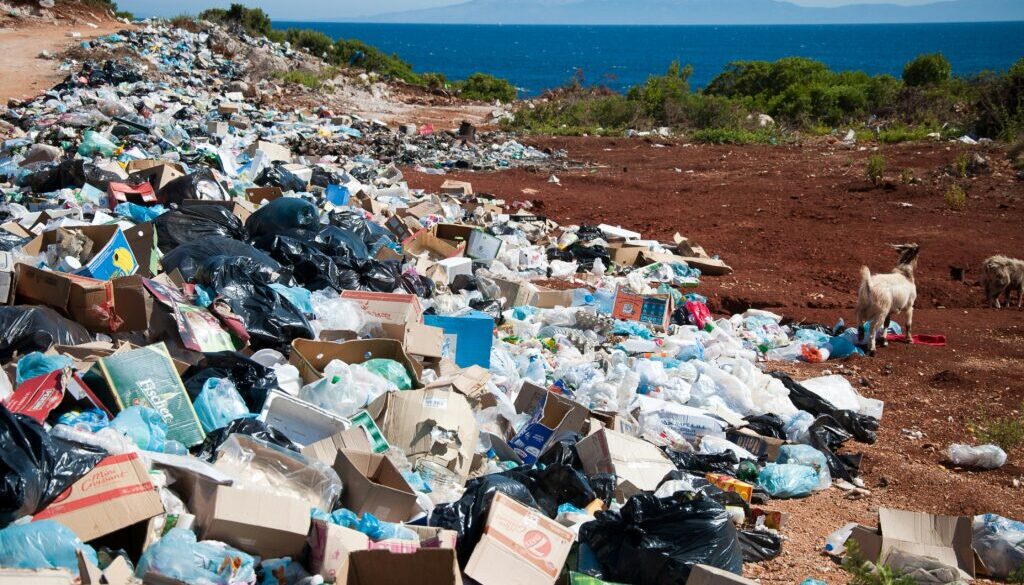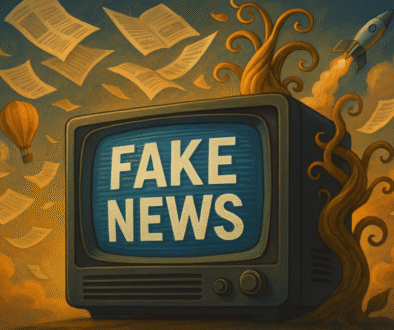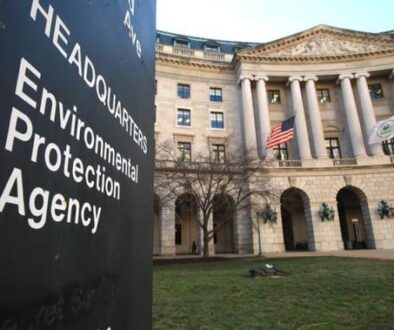Postcard from California: Plastics ‘recycling’ – out of sight, out of mind
 Last year California shipped more than 156 million pounds of plastic waste to poor countries, with almost three-fourths sent to Mexico and another 44 million pounds sent to developing nations in Asia, Latin America, and Africa.
Last year California shipped more than 156 million pounds of plastic waste to poor countries, with almost three-fourths sent to Mexico and another 44 million pounds sent to developing nations in Asia, Latin America, and Africa.
That’s the reality behind the blue recycling bins Californians fill with plastic waste for curbside pickup. We may think we’re recycling, but we’re really sending much of our waste out of sight, out of mind. The great majority is not turned into new products, but piles up in poorly managed landfills or gets dumped into ocean and rivers or is burned, emitting harmful air pollution.
California is the largest exporter of plastic waste of any US state. But the map of places willing to take our waste is shrinking:
- On June 22, Malaysia stopped accepting plastic waste from the US. Malaysia was the third-leading recipient of California’s plastic waste in 2024, receiving almost 10 million pounds.
- Malaysia’s action came on the heels of similar bans implemented Jan. 1 in Indonesia and Thailand, which together received about two million pounds of plastic waste from California last year.
- Vietnam, the number two recipient of California’s plastic waste – more than 19 million pounds last year – is restricting the facilities allowed to receive it.
Export figures come from the Basel Action Network (BAN), a Seattle-based nonprofit that tracks the international waste trade, and California-based nonprofit The Last Beach Cleanup.
BAN is named for the United Nations Basel Convention, a global waste control treaty in effect since 1992. The US signed the Convention’s original text but has never ratified it into law – one of only a handful of nations not party to the pact.
“We are ecstatic that this new law aims to stop much of the harmful plastic waste moving each day from Los Angeles to Port Klang [in Malaysia] under the guise of recycling,” Jim Puckett, founder and chief of strategic direction at BAN, said in a statement. (Puckett, an observer at the Basel Convention’s biannual meetings since its inception, and I both worked at Greenpeace.)
“The ‘recycling’ is doing more harm than good as only a fraction of the exports ever get recycled,” Puckett said. “The plastics that are not feasible to be recycled are often hazardous, or contain microplastics, which are commonly dumped, burned, or released into waterways. The export of plastic waste for recycling is a complete sham.”
A growing body of research finds that microplastics, tiny plastic particles that can be inhaled or ingested, are linked to a host of health problems in people, including colon and lung cancer, pulmonary inflammation, and male and female infertility.
“California should keep our plastic waste at home and declare it to be what it has always been: trash going to landfill,” said Jan Dell, a chemical engineer and founder of The Last Beach Cleanup. Instead of exporting plastic waste, we should work to stop it from being created by banning more unnecessary single-use plastics.”
With more developing nations cracking down on “waste colonialism,” what will California do with its plastic waste?
Puckett said the state could send more plastic to Mexico or to India, which received more than 1.1 million pounds from California last year, send it to in-state landfills, or burn it.
The wiser and more just alternative is to drastically reduce the amount of plastic waste the state generates. To achieve that, consumers must use less plastic, but the real solution is limiting production.
In 2022, California passed a landmark law, SB 54, requiring producers to manufacture less plastic and to make all single-use plastic products recyclable or compostable. It would also shift the costs of recycling from consumers to manufacturers. It is scheduled to take effect in 2032, and rules to implement it were finalized last year.
When it passed, SB 54 was hailed as the strongest of the “extended producer responsibility” waste laws of six other states. But now it seems California lacks the political will to make its ambitious goals reality.
In March, before the rules were formally adopted, Gov. Gavin Newsom effectively threw them out and ordered the drafting of new ones. The new draft rules, expected to be adopted this year, grant broad exemptions for single-use plastics that are federally regulated, including packaging for produce, meat, dairy products and consumer goods such as shampoo and toothpaste.
Newsom’s abrupt action came after a lobbying campaign by plastics producers and packaging companies – and appears aimed at moderating his national reputation as a pro-regulation environmentalist. An advocate who worked on the earlier rules told the Los Angeles Times: “The only thing that has changed since these regulations were finalized six months ago is that Gavin Newsom is now running for president.”
If California stopped exporting plastic waste or strictly limited production tomorrow, that would not solve the world’s plastics crisis. The United Nations Environment Programme (UNEP) estimates that 500 million metric tons of plastic were produced worldwide last year, and 400 million metric tons became waste. “In the absence of urgent action,” UNEP says, the amount of plastic waste could triple by 2060.
On Aug. 5, representatives of 175 nations will meet in Geneva, Switzerland, for another round of negotiations toward a legally enforceable global treaty that addresses the plastics life cycle from production to disposal. The last round of talks broke up in disarray last year as a group of nations refused to accept binding production limits, blocking consensus.
Most plastics are made from oil and gas, so the biggest obstacle to a treaty is the political influence of the fossil fuel industry.
“It’s easy for the oil and gas interests and (oil-producing) countries to block anything that will reduce their profits going forward,” BAN’s Puckett said.
Under the Biden administration, the US supported production limits, but favored non-binding action plans by individual nations instead of a worldwide mandate. The Trump administration’s fealty to fossil fuel interests makes a more progressive US position unlikely.
“The last hope for a successful treaty,” Puckett said, “is passage of a modest (at first) process that aims to eliminate the stupidest (e.g. single-use) plastics first, with a mandate to ratchet up over time. It will have to be a process that cannot be blocked by a consensus process along the way. Then we will have something we can build on.”
- Bill Walker has more than 40 years of experience as a journalist and environmental advocate. He lives in California’s San Joaquin Valley.
(Opinion columns published in The New Lede represent the views of the individual(s) authoring the columns and not necessarily the perspectives of TNL editors.)
(Featured photo by Antoine GIRET on Unsplash.)




July 15, 2025 @ 5:20 pm
Typo regarding SB54. It was passed in 2022.
Thanks for the great article!
July 16, 2025 @ 9:34 am
Thank you for the tip. Will address!